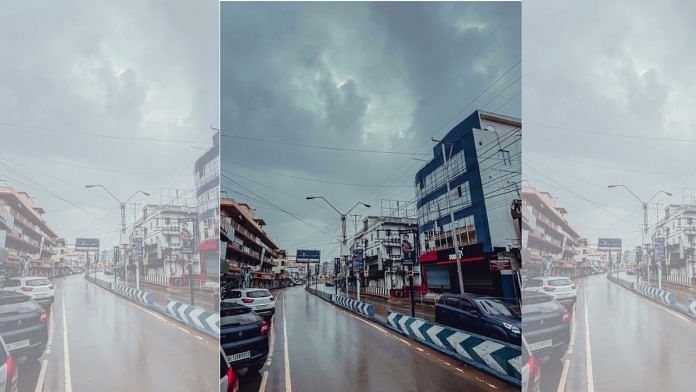New Delhi: What started as a Facebook post has now become a full-fledged campaign in Nagaland’s Dimapur. A group of residents in this commercial hub have come together to offer free lifts to people in need of transportation at night.
Dimapur resident Aneiba Thou’s Facebook post on 12 October offering to pick up and drop any person facing difficulties at night was widely shared across social media platforms. Soon, many others from the town also came up with similar posts offering help.
“Any persons, elders, younger sister or a lady facing problems in transportation at night or any problems or not feeling safe at nearby areas, I am ready to help, so call or SOS me anytime 24×7. Just call and say I need your help, I’ll be there. We believe, together we can bring the change and we will change this… My dream of rape free and safe INDIA,” Thou wrote in his post.
“It is like a chain now, many are doing the same here in Dimapur, anywhere anytime, I am willing to help,” Thou has been quoted as saying.
A constable at the police commissioner’s office in Dimapur, Thou also said if he was busy, he would entrust a friend to help any person in need.
The campaign especially aims to make the city safe for women.
A father of two young daughters, Thou said, “I want my children to be brought up in a world with no crime done against women. Our society has not faced such a severe situation but I want to bring awareness and help people.”
Also read: Manipur welcomes its Akhoipuina — ‘messengers of God, harbingers of good harvest’
Stan Swamy’s arrest can have ‘implications’ for Northeast
Father Walter Fernandes, a Guwahati-based activist, has said that the arrest of Father Stan Swamy, a Jharkhand-based tribal-rights activist, last week in the Bhima Koregaon case will have “implications” for the Northeast, which is home to various indigenous communities.
Fernandes, who has been associated with Swamy for four decades, also said that “activists in the region (Northeast) too have and are facing similar repression”.
“Rights activists who have raised voice against the violations of human rights and rights of tribals in the Northeast have been arrested and put behind bars while indigenous communities have been displaced in the name of development,” Fernandes, 81, told The Shillong Times.
He added: “It is basically a question of human rights. I have known Stan for four decades. He was arrested precisely for supporting the rights of tribals, which is a concern for indigenous communities in the Northeast as well.”
Meanwhile, a candlelight vigil and prayers were observed Thursday in Meghalaya’s Williamnagar to express solidarity with Swamy.
Sikkim tribe protests against hydropower project
The lepchas, an indigenous tribe in Sikkim, have raised their voices against an upcoming 520-megawatt hydropower project at Dzongu, a protected area, which the community considers its “holy land”.
According to the protesters, the project will destroy the area’s fragile ecosystem that also consists of the Teesta river basin and the Khangchendzonga National Park, which is a UNESCO world heritage site.
Gyatso Lepcha, general secretary of a group called Affected Citizens of Teesta, has been quoted as saying: “Nearly 99 per cent of landmass in Sikkim and Darjeeling hills is held by Teesta basin. It is very important to allow the Teesta river, already destroyed for hydro power projects, to flow freely. The upcoming project is going to destroy the last bastion of the Lepchas.”
Lepchas have traditionally believed Dzongu to be a bridge to heaven. Outsiders need permission to visit the place.
Management of human-animal conflict
The World Wide Fund for Nature (WWF) and the Pernod Ricard India Foundation have come together for effective management of human-animal conflict in four Assam districts with an aim to protect wild elephants.
The project will cover 150 villages in Kamrup, Sonitpur, Biswanath and Nagaon districts of Assam. Villagers will be trained on effective situation management and anti-depredation squads will be formed to protect property, crops and lives.
The initiative will also include training of forest department staff in partnership with the state authorities to ensure long-term sustainability of conservation efforts on ground.
A joint statement released by the two bodies earlier this week said: “The project will build on WWF India’s experience on human-elephant conflict management in Assam, developed over the past two decades. These measures include the use of anti-depredation squads, innovative and low-cost fences and diverse awareness raising measures.”
Also read: Flipkart says no services in Nagaland since it is ‘outside India’, then issues apology



